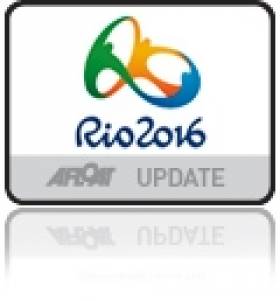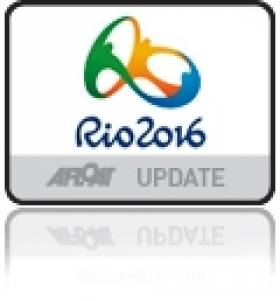Displaying items by tag: Irish Olympic Sailing Team
Former Irish Olympic Sailing Team Manager Michael Wallace Passes Away
Cork Harbour has lost a true legend as former Irish Olympic sailing team manager, Michael Wallace, has passed away. Wallace led the team for 12 years, from the 1980 Olympics in Moscow, where Ireland won its first yachting medal, to 1992 in Barcelona.
Wallace was not just a sailing expert, he was also a former Monkstown Bay Sailing Club (MBSC) Commodore in Cork Harbour. He was a dedicated sailor and a member of the Royal Cork Yacht Club at Crosshaven.
His passion for the sport was evident in his enthusiastic and successful racing helm and skipper in cruiser racing. He was also active in national sailing development, making him a well-known figure in the sailing community.
Wallace was also a Race Officer, and his knowledge of the sport and its rules and administration was immense. In 1980, he was a member of the Irish Laser Laser Team at the World Championships in Canada.
Wallace is survived by his wife, Greta, and sons Henry, Richard, Paul, and David.
Our heartfelt condolences are with his loving family and very many friends.
More details here
#TrofeoSofia – The harsh reality of the mid week split hit home this morning as the Trofeo Princesa Sophia fleet was separated into gold and silver fleets for the next stage of the regatta, the finals series. Only Ireland's James Espey still has a chance of medal race participation come Saturday, for everyone else on the Irish Olympic Sailing Team it is time to salvage some honour in Palma's silver fleets.
But for both of Ireland's Laser sailors today's third day of racing never happened with the 2.4mR, Laser, Laser Radial and RS:X's unable to race due to light winds on their course. This left Ireland's Espey and Annalise Murphy ashore contemplating a truncated series tomorrow.
But London 2012 team–mates Ryan Seaton and Matt McGovern did get to race – and in breeze – the Belfast duo taking a second in the only race of the day for the 49er silver fleet to lie 44th from 79. At the top of this highly competitive skiff fleet, 2013 49er World Champions Peter Burling and Blair Tuke (NZL) have moved into the lead.
In the 49erfx class, Andrea Brewster and Saskia Tidey, also sailing in silver, lie 44th.
Dublin Bay sailor Ross Hamilton is 65th overall in the Finn class.
Full results here
Belfast's Espey Leads Irish Hopes at ISAF Sailing World Cup Trofeo Princesa Sofía in Palma
#TrofeoSofia_en – Looking forward to another consistent showing this today, Ireland's James Espey lies 30th after three rounds at the ISAF Sailing World Cup Trofeo Princesa Sofía in Palma and leads Irish hopes at the massive Spanish regatta. The Belfast sailor counted a 10, 13, 8 leaving him 30th overall in the mens 144–boat Laser fleet.
The rest of the Irish Olympic Sailing Team will be seeking a better performance as they hit the water this morning about now with winds forecast to be slightly stronger than yesterday's 6-8 knots. First day Irish report here and vid highlights above.
Originally scheduled for 11am the fleets have been held ashore with the Finn dinghy (including Ireland's Ross Hamilton) released first. Two more races are scheduled in each of the 11 competing classes.
Espey has been in Palma for over a week and has experienced a host of different conditions which he appears to have mastered by virtue of yesterday's performance and his recent twitter postings:
This wind needs to clam down! The ferry to France could be jumping!
— James Espey (@James_EspeyIRL) March 21, 2014 





























































